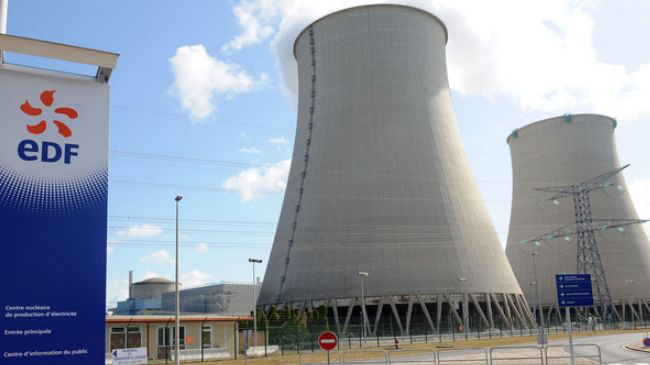French utility EDF has signed an agreement with its Italian subsidiary Edison, along with equipment firms Ansaldo Energia and Ansaldo Nucleare, and the steelmakers’ industry body Federacciai, to explore joint investment opportunities in nuclear energy. This memorandum of understanding (MoU) aims to promote the construction of small modular reactors (SMRs) and the transmission of nuclear energy from French reactors to Italy over the next decade. This partnership is a strategic move towards sustainable energy solutions, reflecting a broader European initiative to reduce carbon emissions and enhance energy security.
The agreement signifies a concerted effort to meet the 2050 climate goals set by various European countries. SMRs are being developed as a cost-effective and targeted solution for heavy industries, such as steel plants, that are significant carbon emitters. EDF has recently shifted its strategy to utilize existing technologies for its SMR designs to reduce costs and meet deadlines more efficiently.
Addressing Carbon Emissions and Enhancing Energy Independence
The steel industry was responsible for about 5% of carbon emissions in the European Union in 2022, according to data from the European Commission. By developing a national supply chain for nuclear energy production, Italy aims to reduce its dependency on energy imports, which currently constitute about 15-20% of its energy consumption. The transition to locally produced nuclear energy is expected to bolster Italy’s energy independence and contribute to the EU’s overall carbon reduction targets.
Antonio Gozzi, president of Federacciai, highlighted the importance of this initiative, stating, “We will work to ensure that this first important agreement can set an example for all hard-to-abate industrial sectors: this is the only viable way to meet the most ambitious decarbonization targets.” This statement underscores the critical role of nuclear energy in achieving sustainable industrial practices and reducing greenhouse gas emissions.
Strategic and Environmental Implications
EDF’s partnership with Edison, Ansaldo Energia, and Ansaldo Nucleare underscores a strategic alignment towards greener energy solutions. By focusing on the development and deployment of SMRs, this collaboration aims to provide a stable and cleaner energy source for industrial sectors that are traditionally hard to decarbonize. The MoU also highlights the importance of international cooperation in tackling climate change and enhancing regional energy security.
The development of SMRs is particularly significant as they offer flexibility and scalability, allowing them to be deployed at specific sites that need targeted energy solutions. This makes them ideal for industries like steel manufacturing, which require consistent and substantial energy inputs. EDF’s decision to leverage existing technologies for SMR development is a pragmatic approach to expedite project timelines and manage costs effectively.
The agreement also involves the potential transmission of nuclear energy from French reactors to Italy, facilitating a cross-border energy exchange that could stabilize supply and demand dynamics in both countries. Also, this cross-border collaboration is a forward-thinking approach that recognizes the interconnected nature of European energy markets and the collective effort needed to transition to sustainable energy.
Towards a Sustainable Energy Future
The partnership between EDF and its Italian counterparts represents a significant step towards building a resilient and sustainable energy infrastructure in Europe. As part of its broader strategy, EDF aims to double its nuclear energy output by developing new projects and upgrading existing facilities. The Katlan project off Israel’s Mediterranean coast, announced earlier this week, is another example of EDF’s commitment to expanding its nuclear energy capabilities.
By focusing on SMRs and other innovative technologies, EDF and its partners are poised to play a crucial role in reducing carbon emissions and supporting the EU’s climate goals. This collaboration not only enhances energy security but also sets a precedent for other sectors to follow, demonstrating the viability of nuclear energy as a cornerstone of a sustainable energy future.
As the development of the Katlan project progresses, it will be essential to monitor the environmental impact and ensure that best practices are followed to minimize ecological disruption. Moreover, the success of this initiative will likely influence future investments and regulatory frameworks in the nuclear energy sector.
In conclusion, the MoU between EDF, Edison, Ansaldo Energia, Ansaldo Nucleare, and Federacciai marks a pivotal moment in the transition towards sustainable energy in Europe. By leveraging nuclear technology, these companies are setting the stage for a cleaner, more secure energy future.
Source: Reuters



